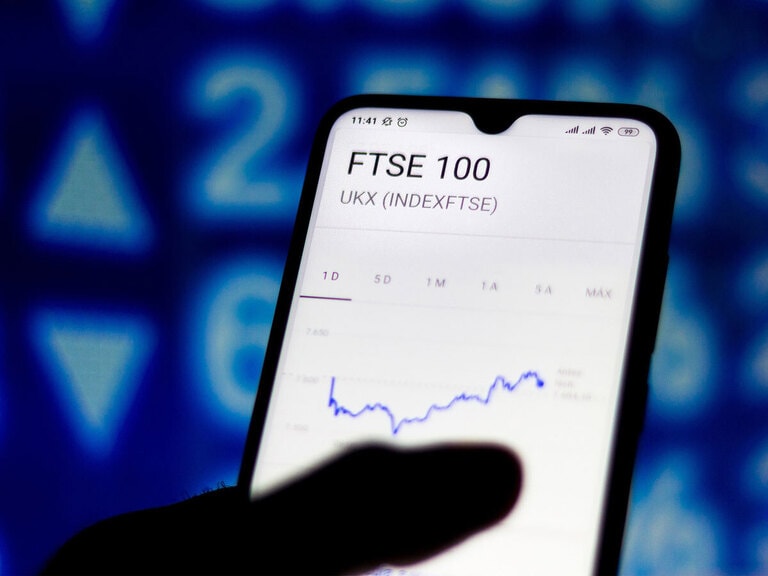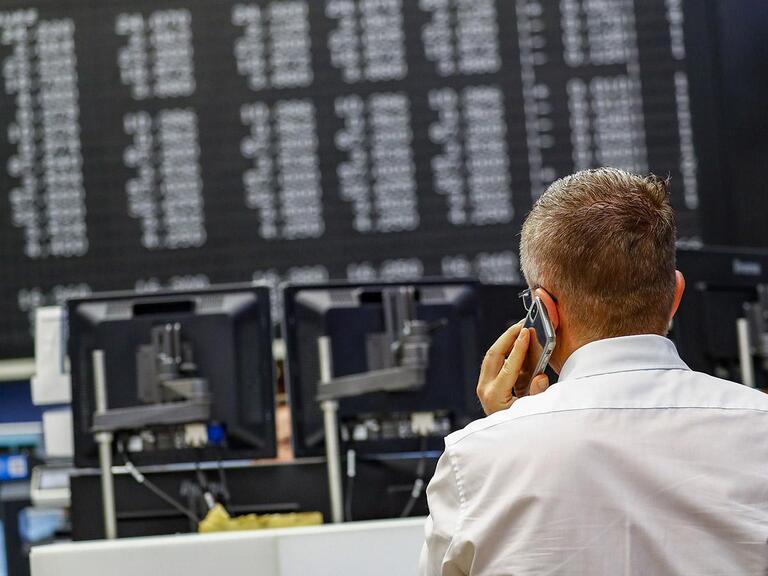In what has been a roller-coaster week European markets have tried to finish the week on the front foot, however, have struggled to build on the gains of yesterday, and look set to post another negative week.
Europe
The FTSE100 especially has had a poor start to the year, down over 3% posting 3 weekly declines in succession, with retailers seeing most of the early year weakness.
JD Sports, Ocado, Burberry and Frasers Group are all down heavily, with weakness in basic resources as well with Glencore amongst the main decliners.
Today’s attempt at a rebound has been led by health care along with further gains for Flutter Entertainment after the positive response to yesterday’s numbers, prompted a price target upgrade from Deutsche Bank.
AstraZeneca shares are higher after securing regulatory approval from Japanese health authorities for its Voydeya blood disorder drug.
When Deliveroo reported in Q3 it was very much a case of steady as she goes with the focus very much on keeping costs under control as it looked to become more profitable, while maintaining its full year guidance of full year adjusted EBITDA guidance to £60-£80m.
Today’s Q4 numbers have seen the shares give up their early gains after revenues came in at £523m, which was a slight improvement on last year, pushing full year revenues up to £2.03bn, despite a 3% annual decline in orders.
The UK and Ireland business was the key strength on the year with an 8% rise in annual GTV and an 8% increase in revenue. The weak spot was international which saw annual revenues decline by 4%, however that hasn’t prevented Deliveroo, saying it expects to see adjusted EBITDA to come in slightly above the £60m to £80 guidance.
US
Having seen the Nasdaq 100 push up to new record highs yesterday, with AMD and Nvidia reaching similarly fresh record level highs of their own, we’ve seen that momentum carry over today with another positive open, despite this week’s rise in yields.
Roomba vacuum maker iRobot shares have slumped on reports that the EU may well block the $1.7bn acquisition of the business by Amazon. That must really suck for shareholders.
Apple shares are once again in focus after Spotify and Alphabet followed Netflix in announcing that they won’t develop an app for use on YouTube or Spotify to use on Apple’s new $3,500 mixed reality headset.
After an awful week for Spirit Airlines in the wake of the collapse of its acquisition by JetBlue the shares are higher today after the beleaguered airline urged JetBlue to appeal the decision as it looks.
Ford’s EV program suffered another setback after the motor giant announced it was reducing production of its F-150 car.
FX
The pound is the worst performer after a horrendous set of December retail sales numbers which fell -3.2%, although November was revised slightly higher to 1.4%. These numbers would suggest that consumers decided to get their Christmas shopping in early, taking advantage of Black Friday deals and other associated discounts. We shouldn’t forget either the rail strikes at the beginning of the month along with the wet weather which probably kept people at home. The extent of the weakness of today’s numbers is that UK Q4 GDP could see the economy fall into a technical recession with another negative quarter, when the numbers are released next month.
The US dollar has been the best performer this week rising to one-month highs as US rate cut projections get pushed further into the year, with some modest profit taking place as we head into the weekend. Next week is set to be the start of a key fortnight for central bank rate meetings, where in the wake of all this weeks’ chatter that markets are getting ahead of themselves on the rate cut front, next week will see the ECB look to reinforce that decision, while the Bank of Japan has the opposite problem as it attempts to steer a course that will enable it to pull its headline rate out of negative territory.
Commodities
Crude oil prices look set to finish the week only marginally above where they finished a week ago. This is even more surprising given that localised flare-ups in the Middle East have extended to Pakistan and Iran whose forces have made targeted incursions into each other’s territory to root out what their respective governments consider militant forces. The lack of reaction to these new factors suggests that markets think the effects will be limited, while US production is still at record levels of 13.5m barrels a day, which is helping to keep supply concerns limited.
Gold prices slipped back to 5-week lows this week, hindered somewhat by the sharp rise in yields in the last few days, however the downside has been tempered by the haven buying as tensions in the Middle East show little signs of easing. The widening of tensions is a concern, with the emanating from events in Gaza now spreading to other areas. If the region were a heat map, more and more of the area is starting to turn orange.
Volatility
Disappointing economic data out of Beijing continues to deliver momentum for many Asian equity indices, with Hong Kong’s Hang Seng proving to be amongst the most active on Thursday. The index headed towards lows not seen in more than a year during Wednesday’s trade and hopes that a marked rebound would be seen on Thursday failed to materialise. One day vol on the market stood at 33.36% against 23.88% for the month.
CMC’s proprietary basket of US banking stocks sold off on Thursday, moving down to levels not seen in over a month before finding legs for something of a rally heading into the close. Several companies in the sector reported waning profits as savings margins were eroded and one-off costs took a toll, too. One day vol on the cohort printed 34.38% against 28.4% for the month.
Natural Gas prices remain a standout in commodity markets although activity levels have been meaningfully reduced. Yesterday’s inventory draw was the biggest since last winter, but not quite of the scale that the market had been expecting. That saw prices sell off again and we’re now down 20% from the levels posted at the end of last week. One day vol on Nat gas came in at 76.91% against 73.9% for the month.
And a quick word on cryptos where markets have been looking rather muted compared with last week’s ETF-approval driven uncertainty. One day vol on Bitcoin stood at 40.67%, well below the one month print of 51.65%.
Disclaimer: CMC Markets is an execution-only service provider. The material (whether or not it states any opinions) is for general information purposes only, and does not take into account your personal circumstances or objectives. Nothing in this material is (or should be considered to be) financial, investment or other advice on which reliance should be placed. No opinion given in the material constitutes a recommendation by CMC Markets or the author that any particular investment, security, transaction or investment strategy is suitable for any specific person. The material has not been prepared in accordance with legal requirements designed to promote the independence of investment research. Although we are not specifically prevented from dealing before providing this material, we do not seek to take advantage of the material prior to its dissemination.






